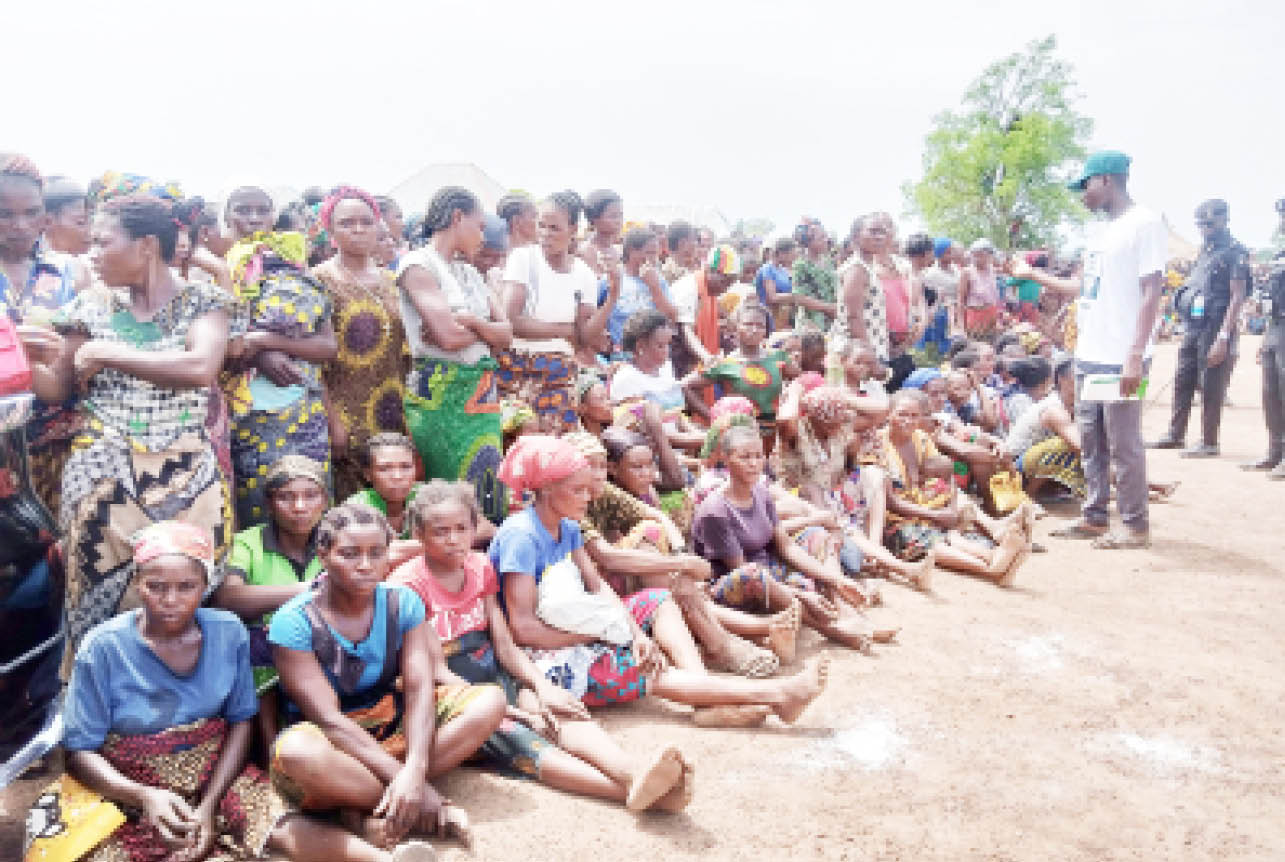On May 23, 2022, the United Nations Refugee Agency, UNHCR announced that the number of people now forcibly displaced around the world stood at 100 million. A truly staggering number. Or not quite. Considering that the world’s population is now surging towards eight billion. But a peek behind that number would show not just figures, but lives violently upturned.
At the end of 2021, the number of people forced to flee stood at 89.3 million. Since then, the war in Ukraine has displaced millions within the country as well as to other countries, primarily in Europe. In addition, new internal displacement surged in early 2022, notably in Myanmar and Burkina Faso as the situation in both countries continued to deteriorate.
- Insecurity: ‘Kidnapping for ransom shows FG helpless’
- N10bn probe: Ijaw youths, ex-militants leaders warn senate over threat to Dikio
As a result of these situations as well as other increases described below, UNHCR announced on May 3, 2022 that the number of people forced to flee due to persecution, conflict violence, human rights violations and events seriously disturbing public order had reached more than 100 million for the first time on record. This means that 1 in every 78 people on earth has been forced to flee – a dramatic milestone that few would have expected a decade ago.
Statistics reflect that overall some 11.8 million additional people were forced to flee in the first few months of 2022, driving the global total above 100 million.
Since the end of 2021, the number of refugees under the UNHCR’s mandate (including those in refugee-like situations) has increased from 21 million to 26.3 million, largely driven by the war in Ukraine, which has led to at least 4.9 million Ukrainian Refugees remaining displaced outside their country as of June 9, 2022. Most of them have received temporary protection or have benefitted from similar national protection schemes in European countries.
The number of internally displaced people has also continued to rise. The war in Ukraine has led to the displacement of millions within the country. Estimations of these populations are challenging due to the rapidly evolving situation in the country. The International Organisation for Migration (IOM) conducts randomised representative, telephone surveys to estimate the number of people displaced within Ukraine. At the end of May 2022, there were an estimated 7.1 million IDPs in Ukraine, an increase of 6.3 million compared to end-2021.
In Myanmar, the military takeover in February 2021 ignited widespread violence and continues to force many people to flee. Since the end of 2021, UNHCR estimates that the number of IDPs in Myanmar has grown by 366,800 people to over 1 million.
In Burkina Faso, internal displacement continues to rise, with the country facing one of the fastest growing situations in the world, rising from less than 50,000 at the start of 2018 to around 1.6 million at the end of 2021. Since then, UNHCR estimates a further 270,300 have been displaced, with some 1.9 million people remaining displaced within the country at the end of March 2022.
Beyond the figure of a hundred million people who have been forcibly displaced in different situations, what is not hidden is a traumatizing tale of lives violently upturned, and of livelihoods altered forever. This is as a result of conflict, the kind which leaves people nursing lasting scars.
In Nigeria`s North East where Boko Haram has been criminally active for more than a decade now, displacement has become a feature of life. It has become perhaps the most prominent feature of the terrorism induced conflicts in Nigeria, and building lasting peace must certainly involve serious measures to combat displacement and enable people to return to their normal lives.
Tackling displacement means going to its root causes. This is crucial if children are to grow up in stable families and communities free of the traumatising effects of war and conflict.
Kene Obiezu can be reached through [email protected]

 Join Daily Trust WhatsApp Community For Quick Access To News and Happenings Around You.
Join Daily Trust WhatsApp Community For Quick Access To News and Happenings Around You.![palestinians hold eid al adha prayers by the ruins of ar rahma mosque destroyed by israeli air strikes, in khan younis, in the southern gaza strip. [mohammed salem reuters]](https://dailytrust.com/wp-content/uploads/2024/06/palestinians-hold-eid-al-adha-prayers-by-the-ruins-of-ar-rahma-mosque-destroyed-by-israeli-air-strikes-in-khan-younis-in-the-southern-gaza-strip.-mohammed-salem-reuters-150x150.jpg)


